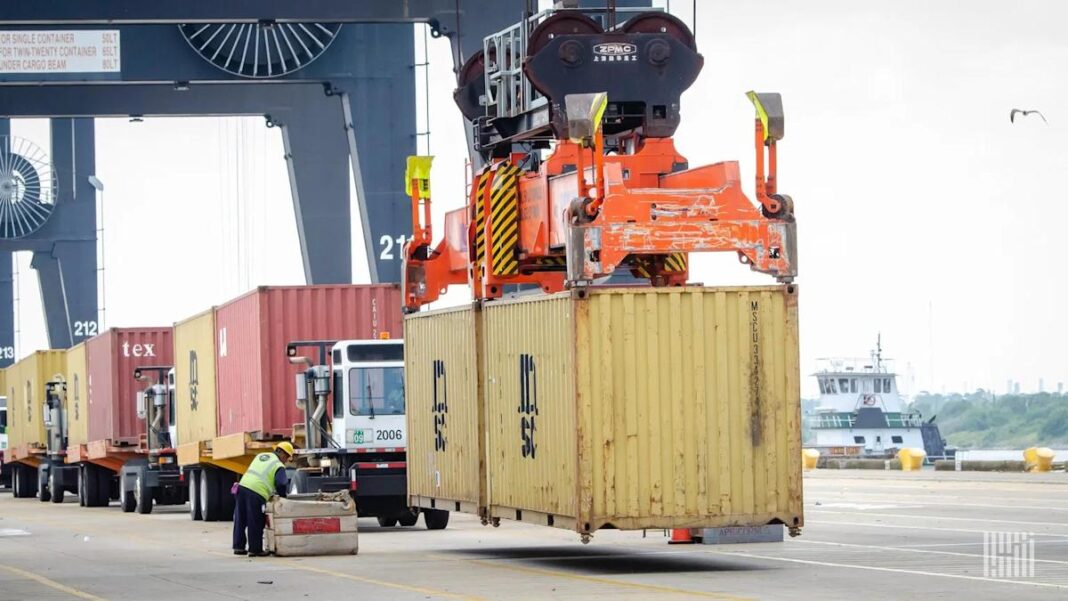As labor shortages, geopolitical shifts and changing sourcing strategies roil the global supply chain, logistics providers are racing toward automation — and fast.
Few companies are seeing that shift as clearly as Alpha Augmented Services, a Switzerland-based AI optimization platform that said demand for digital decision-making is accelerating across every major trade region.
“We’re seeing inefficiencies every day, and the main driver is people and the decisions they’re taking,” CEO Massimo Rossetti said during an interview with FreightWaves. “The experience that used to anchor warehouses is disappearing. The workforce is changing, and companies need a way to capture decades of knowledge before they retire.”
Alpha Augmented — winner of the 2025 Digital Innovation Award at the Logistics Cluster Forum in Basel, Switzerland last month — leverages AI to optimize logistics processes, including packaging and shipping, for enterprises of all sizes and across primary modes of transportation, including, air, ocean and road.
The company says its software can cut logistics costs and CO₂ emissions by up to 20%, while boosting productivity as much as 40%.
Rossetti said an emerging trend in global logistics is a widening expertise gap inside warehouses.
Across Europe, North America and Asia, veteran warehouse workers with 30 to 35 years of tribal knowledge are retiring, while younger staff tend to view logistics as a short-term stop — not a long-haul career. That churn, Rossetti said, is undermining consistency and quality in daily operations.
“Our customers all have the same challenge,” he said. “They’re losing the people who knew how to pack freight the right way for decades. The transition to less experienced workers is where inefficiency really grows.”
Alpha’s platform attempts to standardize those decisions by digitizing a company’s operational rules, packing logic and safety requirements into automated workflows — ensuring even inexperienced workers follow optimal patterns.
Rossetti and COO Amjad Ladak said many companies severely underestimate the data requirements needed to operate the “warehouse of the future.”
Rossetti pointed to Adidas’ new largely automated facility in Mantua, Italy, which reduced its workforce from 3,500 to roughly 700. While automation drives massive productivity, “what they’re missing most of the time is the data,” Rossetti said. “How do I feed these machines? Where do I get the data?”
Alpha prepares companies for that transition by collecting and maintaining shipment-level data as part of its optimization process, Rossetti said. Even customers still using paper spreadsheets can achieve measurable gains quickly.





